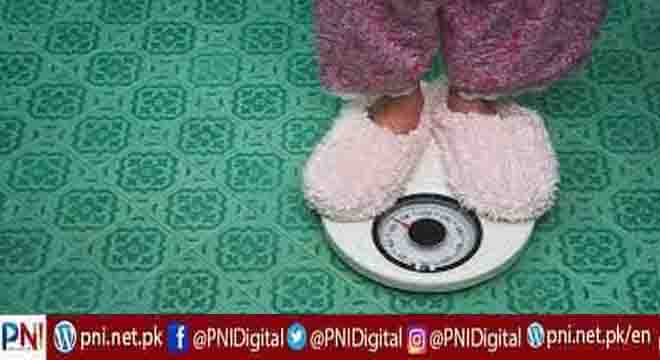ISLAMABAD, 04 Sep (Online): While the measurement isn’t currently recommended, new research finds baby weight that shows an uptick at 4 months old may hold clues to bigger problems.
Share on Pinterest
When a child is born, his or her parents hope for the best while also wondering what the world has in store for their little one.
While being a new parent can feel unpredictable, new research suggests a baby’s body mass index (BMI) can help predict obesity later in life.
Major health organizations like the U.S. Centers for Disease Control and Prevention (CDC) and the World Health Organization (WHO) don’t recommend using BMI for a baby growth chartTrusted Source because many questions about BMI remain unanswered.
However, new research from the Cincinnati Children’s Hospital Medical Center shines some light on its potential.
The researchers say weight gained during infancy is different than pounds put on later in life.
Their findings were presented today at the national Endocrine Society meeting in Boston.
BMI in Babies
The researchers studied 783 lean and 480 obese participants, including those referred to specialized care at Cincinnati Children’s Hospital Center.
The scientists say they found the weight trajectories of children who were obese by 6 years old were different than those who were at a healthy weight at 4 months old.
The research team then double-checked their findings by studying young children seen by a pediatric clinic in Denver and found their research also applied to this group.
Dr. Allison Smego, the study’s lead author and a fellow in the division of endocrinology at Cincinnati Children’s Hospital Center, said BMI above the 85th percentile at 6, 12, and 18 months can accurately predict a child’s risk for early childhood obesity.
“These children have a high lifetime risk for persistent obesity and metabolic disease and should be monitored closely at a very young age,” Smego said in a press release.
While this doesn’t automatically mean an obese infant will become an obese adult, it could help identify those who are at a higher risk so early interventions can be implemented.
“Pediatricians can identify high-risk infants with BMI above the 85th percentile and focus additional counseling and education regarding healthy lifestyles toward the families of these children,” Smego said. “Our hope in using this tool is that we can prevent obesity in early childhood.”
About a third of adults and children in the U.S. are overweight or obese, so the healthcare system faces a major hurdle in attempting to deal with the related health risks.
Some of the risks include a shortened lifespan due to metabolic diseases like diabetes, heart disease, and even some types of cancer.
Follow the PNI Facebook page for the latest news and updates.









